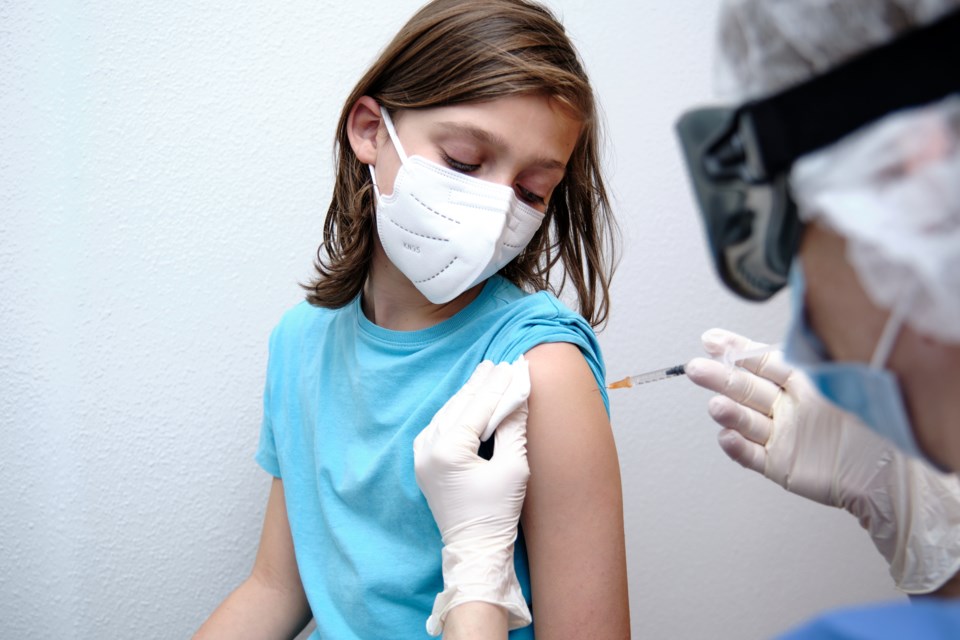COVID-19 infections in B.C. that are serious enough to be in hospitals, or those facilities' intensive care units (ICUs), are at new months lows, but there is an indication that those cases may soon rise, as active infections are on the increase.
There are 284 COVID-19 patients in B.C. hospitals, which is the fewest since September 13. Of those 97 patients are in ICUs, which is the fewest since August 30.
That good news is tempered by the fact that active infections have risen to 3,020, after being below the 3,000 threshold in each of the past three data updates, since November 29.
Active cases rose in the past day because 368 new infections were detected and that was higher than the number of recoveries.
The B.C. government usually considers COVID-19 patients to have recovered if they have gone 10 days following first feeling symptoms, as they are therefore deemed to no longer be infectious. Some patients, however, continue to have health problems for months after their recoveries.
The 368 new cases detected in the past day includes:
• 90 in Fraser Health;
• 48 in Vancouver Coastal Health;
• 101 in Interior Health;
• 40 in Northern Health;
• 88 in Island Health; and
• one person who normally lives outside B.C.
The 3,020 active cases include:
• 1,003 in Fraser Health;
• 485 in Vancouver Coastal Health;
• 578 in Interior Health;
• 351 in Northern Health;
• 602 in Island Health; and
• one person who normally lives outside B.C.
Of the 219,180 people known to have been infected with the disease since the first case was discovered in the province on January, 28, 2020, 213,694 people, or 97.5%, are considered recovered.
Five more people have died from COVID-19 in the past day, raising the province's pandemic death toll to 2,345. Three of those people were in the Fraser Health region, whereas the other two lived in the Northern Health region.
Unvaccinated people continue to be the ones most spreading the disease.
Between November 24 and November 30, people not fully vaccinated accounted for 57.9% of new cases, and between November 17 and November 30, those individuals accounted for 68.1% of hospitalizations.
This is despite the vast majority of British Columbians being fully vaccinated.
B.C. government data show that 4,234,504 residents have had at least one dose of vaccine, while 4,076,233, or more than 96.2% of those are fully vaccinated with two doses.
Children as young as five years old started to get vaccinated on Monday, and as a result there has been a jump in the number of new people getting their first doses of vaccine. There were 5,823 people who got their first dose of vaccine in B.C. in the past day – the highest daily total since October 6. This is up from a months-low total of 964 people who got their first jab of vaccine on November 30.
The government estimates that 85% of eligible British Columbians, older than five years, have had at least one vaccine shot, while 81.8% of that eligible group is considered fully vaccinated with two jabs.
The B.C. government last year estimated in that the province's total population is 5,147,712, so Glacier Media's calculation is that more than 82.2% of B.C.'s total population has had at least one dose of vaccine, and 79.2% of the province's total population has had two doses.
Booster shots have started to be given to immunocompromised people, those older than 70 years, who have gone six months from their second dose, as well as to those who received two AstraZeneca doses of vaccine and have gone six months since their second dose. So far, 452,593 people have received their booster dose, according to today's data. That is 17,803 more than yesterday.
No new outbreaks have been detected at health-care facilities, leaving the province with five ongoing outbreaks in seniors' homes and hospitals. •



